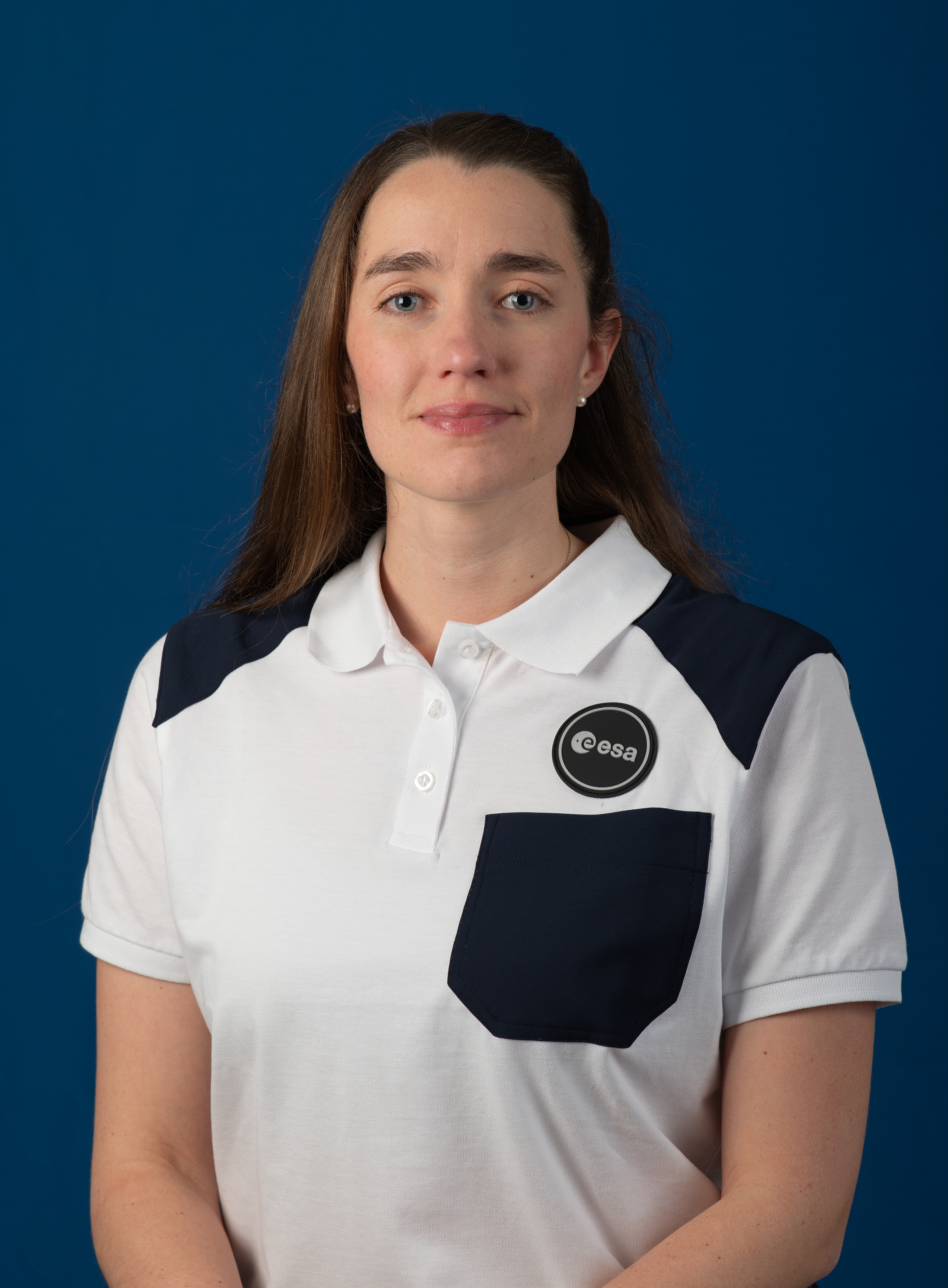Rosemary Coogan
British - (ESA)
In-Training
Rosemary holds two master’s degrees from the University of Durham, UK. She completed her undergraduate master’s degree of Physics in 2013 which focused on physics, mathematics, computer programming and astronomy. In 2015, she received her master's degree in Astronomy, where she conducted research on gamma-ray emission from black holes. In 2019, Rosemary graduated with a doctorate in astronomy from the University of Sussex, UK. Between 2013 and 2018, Rosemary spent more than one year working as a simulation support engineer and research data scientist in the UK, where she worked on software code development projects and developed machine learning techniques for anomaly detection from robotic sensors. In 2019, Rosemary started a postdoctoral research fellowship in astrophysics at the Max Planck Institute for Extra-terrestrial physics in Munich, Germany, to study the evolution of galaxies with astronomical data from space- and ground-based telescopes. After completing this postdoctoral work in 2022, Rosemary joined French space agency CNES in Paris, France, as a research fellow in space science, where she worked on upcoming ESA/CNES missions such as EUCLID or the analysis of James Webb Space Telescope observations.
Spaceflight Record
No spaceflights found for Rosemary Coogan.
The European Space Agency is an intergovernmental organisation of 22 member states. Established in 1975 and headquartered in Paris, France, ESA has a worldwide staff of about 2,000 employees. ESA's space flight programme includes human spaceflight (mainly through participation in the International Space Station program); the launch and operation of unmanned exploration missions to other planets and the Moon; Earth observation, science and telecommunication; designing launch vehicles; and maintaining a major spaceport, the Guiana Space Centre at Kourou, French Guiana.
Falcon 9
Starlink Group 6-103
Space Launch Complex 40 - Cape Canaveral SFS, FL, USAA batch of 29 satellites for the Starlink mega-constellation - SpaceX's project for space-based Internet communication system.
Falcon 9
Starlink Group 17-13
Space Launch Complex 4E - Vandenberg SFB, CA, USAA batch of 24 satellites for the Starlink mega-constellation - SpaceX's project for space-based Internet communication system.
Falcon 9
Crew-12
Space Launch Complex 40 - Cape Canaveral SFS, FL, USASpaceX Crew-12 is the twelfth crewed operational flight of a Crew Dragon spacecraft to the International Space Station as part of NASA's Commercial C…
Ariane 64
Amazon Leo (LE-01)
Ariane Launch Area 4 - Guiana Space Centre, French GuianaAmazon Leo, formerly known as Project Kuiper, is a mega constellation of satellites in Low Earth Orbit that will offer broadband internet access, thi…
Vulcan VC4S
USSF-87
Space Launch Complex 41 - Cape Canaveral SFS, FL, USAUSSF-87 will launch two identical Geosynchronous Space Situational Awareness Program (GSSAP) satellites GSSAP-7 and GSSAP-8 directly to a near-geosyn…


